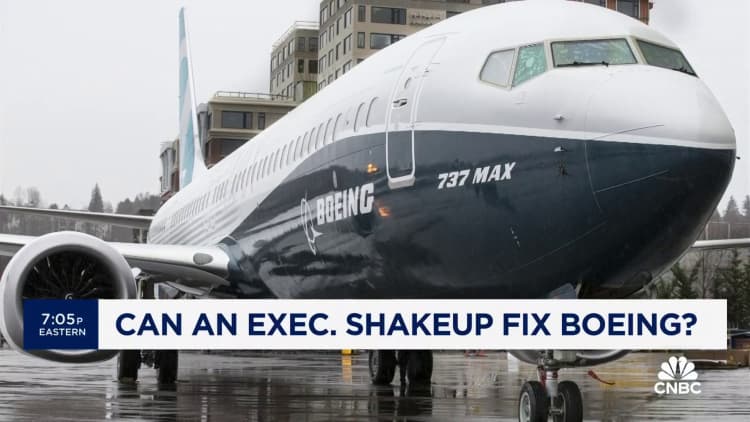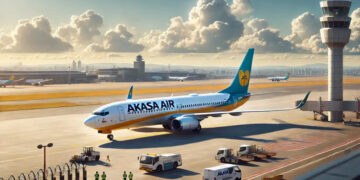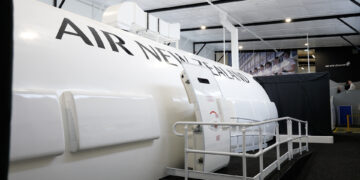Boeing needs to be led by engineers, Emirates Airline president says
A Boeing 737 Max aircraft during a display at the Farnborough International Airshow, in Farnborough, Britain, July 20, 2022.
Peter Cziborra | Reuters
Boeing needs to be led by engineers if it wants to pull itself out of its current crisis, Tim Clark, the president of Emirates Airline, said Wednesday.
Boeing said Monday that CEO Dave Calhoun will step down at the end of the year, part of a broad management shake-up. The U.S. aerospace giant is once again mired in controversy following a recent series of mid-flight technical failures, starting with a door panel that blew off of a new Alaska Airlines 737 Max 9 midflight on Jan. 5
The Federal Aviation Administration and Justice Department are now scrutinizing the plane maker more intensely, the former capping the production of Boeing’s 737 aircraft at 38 per month while it investigates the company’s manufacturing practices. The FAA grounded all 737 Max 9 aircraft with door plugs for inspection on Jan. 6, though the planes were cleared to fly shortly afterward.
“To fix Boeing’s issues the company needs a strong engineering lead as its head coupled to a governance model which prioritizes safety and quality,” said Clark, who leads Dubai’s flag carrier Emirates.
“It is little wonder that the Machinists Union wants a seat on the board, simply to ensure that the voice of the factory floor is part and parcel of the decision process and is fully integrated into the governance model’s risk management strategies.”
Aviation analysts and former Boeing employees have criticized the company’s reported sidelining of engineers in its senior management ranks. They note that of the top executives at Boeing, the only one with an engineering background was Stan Deal â the outgoing CEO of Boeing’s commercial airplane division. He is stepping down and will be succeeded by Stephanie Pope, Boeing’s newly named chief operating officer, Boeing said Monday.
“Whether, yet again, this changing of the guard will resolve Boeing’s issues only time will tell, but time, unfortunately, is not on their side,” Clark said in emailed comments. “I would suggest that some serious lateral thinking kicks in as soon as possible.”
CNBC has contacted Boeing for comment.

Up until the Alaska Airlines accident, the plane maker was seen as having recovered from its 2018-2019 crisis period, during which time two of its new 737 Max jets crashed within a period of six months, killing 346 people.
The 737 Max was grounded worldwide for nearly two years after that, and the ensuing investigations found design problems in the aircraft, insufficient training of pilots on the new models, and the hiding of information from safety regulators, leading to billions of dollars in fines for Boeing and a senior management shake-up.
But following the Alaska Airlines door blowout in January, the FAA’s six-week audit of Boeing and Spirit AeroSystems “found multiple instances where the companies allegedly failed to comply with manufacturing quality control requirements,” according to an FAA release published March 4.
“The FAA identified non-compliance issues in Boeing’s manufacturing process control, parts handling and storage, and product control,” it said. The regulatory agency said it informed Boeing’s leadership that it “must address the audit’s findings as part of its comprehensive corrective action plan to fix systemic quality-control issues,” and address its “safety culture.”
In a previous statement cited by CNBC, a Boeing spokesperson said in response to the FAA findings that the company continues “to implement immediate changes and develop a comprehensive action plan to strengthen safety and quality.”Â
“We are squarely focused on taking significant, demonstrated action with transparency at every turn,” the spokesperson said.
â CNBC’s Joan Muwahed contributed to this report.















































